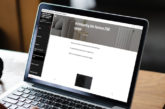
The return to work in January can be a sobering affair, particularly if, like some 4.85 million people, you have waited until now to complete your self-assessment tax return. Lee Murphy runs through what you need to consider.
Anyone who is not taxed at source – who does pay tax as you earn (PAYE) – is required to complete a self-assessment return by 31st January. If you earn an income outside work, for example from rental property, you will also need to fill in a return. The deadline is also the tax payment due date.
If you have left it until now to get your finances in order, don’t panic. Now is the time to get organised and find a few hours to pay attention to the books. Doing it now will mean that you avoid the risk of escalating fines – starting at £100 – for failing to meet the deadline.
This handy guide will help you survive the self-assessment blues.
Get organised
For sole traders, total income is calculated as being money earned minus business expenses, including materials. That means it is important to have kept records of when and how customers have paid you, whether that’s in cash, bank transfers or cheque.
Of course, if you’ve been diligent over the last 12 months you have been using bookkeeping software to keep immaculate records with the breakdown between labour and material costs recorded. For the few that may have been too busy to keep exact records, now is the time to start digging out copies of invoices you have issued over the last year.
If you’re a limited company director who takes a salary from your own business, you will need your P60 as a record of your income from your employment as well as any expenses and the tax you’ve already paid in the self-assessment year.
If, as a limited company director, you’re paid dividends you will need vouchers for those issued during the tax year. If you’re a shareholder in any other company that has issued a dividend, you’ll also need the paperwork to go with that.
Anyone completing a return will also need to declare any other sources of income, such as rental income and interest earned on savings.
You will also need to declare any charitable payments and tell HMRC about any pension payments you’ve made.
Expenses
As you will be taxed on your profits, it’s important to keep a record of material costs and other business expenses.
For sole traders, claiming expenses is fairly straightforward: simply add up all business outgoings and put the total on your self-assessment return. For plumbers and heating engineers, costs cover everything from protective clothing and the laundering of it to insurance and equipment.
For limited company directors the process differs slightly but expenses should be reimbursed by the business account, with remaining profits taxed. If in doubt, it is always best to check.
Whether you’re a sole trader or limited company director, it’s important to keep all of your business expense receipts should the Revenue require more information.
Travel costs
As someone who spends time on the road traveling to jobs, your travel expenses will be a significant slice of your business outgoings, something you can claim relief on.
As well as claiming costs for travel, you can also claim on vehicle running costs, such as repairs and maintenance, cleaning, parking and tolls, MOT, road tax and insurance.
Home office?
If, like thousands of other small business owners you have an office in the home, your business can pay you up to £4 a week towards the cost without HMRC requiring receipts under ‘Business use of Home’.
You’ll need to provide receipts for anything above the £4 threshold and won’t be able to claim for fixed costs such rent or council tax, but if you’ve brought new equipment for your business, such as a laptop, it could qualify for tax relief.
Get with the digital age
Even if you have left it late to get organised, there is plenty of help online to assist you – a lot of it is free of charge. Simple accounting software will help you speed up your bookkeeping tasks, saving you a huge amount of time.
With the use of functions such as automatic bank feeds and file imports, transactions can be categorised in seconds meaning you have more chance of making the deadline. Due to the nature of accounting software it will also reduce the scope for error which means you pay the right amount of tax and reduce your risk of an HMRC investigation.
What if I missed the deadline or I can’t afford to pay?
If you miss the deadline, contact HMRC. If money is tight and you are unable to pay you may be able to agree an extension or to pay in instalments. Do not ignore the problem or you will incur fines and perhaps also attract unwanted attention from the taxman.
Getting your finances in order now will help you meet the deadline and will put you in a good position for the year ahead. Don’t leave it for another day.
Lee Murphy is the founder of Pandle, the cloud bookkeeping software specifically for small businesses and the self-employed.













